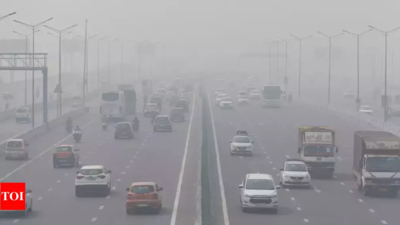
NEW DELHI: Members of Indian Chest Society (ICS) have expressed concern regarding the recent removal of specialised respiratory medicine departments from the MBBS syllabus, as outlined in the Undergraduate Medical Education Board (UGMEB) 2023 guidelines that took effect this year. The alteration comes at a time when there is an increasing prevalence of respiratory disorders associated with pollution and various pulmonary conditions in many parts of the country, especially in the national capital and neighbouring areas. Medical experts have criticised National Medical Commission 's justification for reducing the academic load on MBBS students, noting it as an unreasonable stance, given the growing need for primary physicians to address the surge in respiratory conditions.
Dr GC Khilnani, director of respiratory medicine at PSRI Hospital and ICS (north zone) chair, highlighted India's position among the world's most polluted nations. He pointed out that PM2.5 exposure exceeds WHO safety guidelines for over 99% of Indians, requiring urgent action to reduce pollution and strengthen medical facilities.
The health consequences are significant, with respiratory and cardiovascular conditions worsening when the air quality index turns hazardous, particularly affecting vulnerable groups. The Poseidon study, published in The Lancet in 2015, showed respiratory symptoms constitute over half of all medical consultations in India. Dr Khilnani stressed the need for systematic improvements, particularly in developing comprehensive respiratory healthcare infrastructure, to address pollution-related medical challenges.
As the chairman of respiratory medicine, critical care and sleep medicine at Saroj Superspeciality Hospital and Jaipur Golden Hospital, and vice-president of ICS, Dr Rakesh Chawla emphasised how respiratory medicine departments are essential for diagnosing and treating complex breathing disorders while backing broader health initiatives. He cautioned that removing these specialised departments would severely impact patient care, particularly in managing tuberculosis (TB), chronic obstructive pulmonary disease (COPD), and pollution-related illnesses. Such actions would impede India's efforts to eradicate TB, he added.
Dr Chawla further noted that hospitals lacking dedicated respiratory units faced substantial constraints in providing thorough healthcare services and meeting the broader medical needs of the community. WHO's Global TB Report 2024 highlights India's significant tuberculosis burden, revealing that the country represents 26% of the worldwide active TB cases. In 2023, India recorded the highest worldwide share of multidrug-resistant TB cases at 27% while also accounting for 26% of TB-related fatalities globally.
Dr Manoj Goel, principal director and head of the department of pulmonary medicine at Fortis Medical Research Institute, Gurgaon, also stressed the crucial requirement for accessible, high-quality respiratory healthcare services in the present circumstances..














